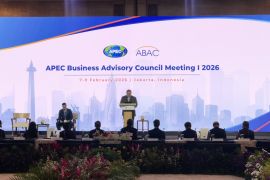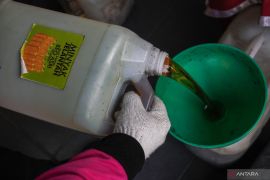Accordingly, it has established a team that will study, one by one, all existing and planned contracts carefully, Energy and Mineral Resources Minister Darwin Saleh said in a press statement here on Monday.
The team will be very careful in reviewing the contracts one by one, and the results will be reported to the President for consideration from the standpoint of wider perspectives, he said.
He said the basis for renegotiating the export contracts on natural gas or liquefied natural gas (LNG) was Article 33 of the 1945 Constitution which states that all natural resources are controlled by the state and used fully for the welfare of the people.
Right now buyers under the LNG contracts of Tangguh Refinery in Papua include China, South Korea and the United States.
Meanwhile, buyers under the on-going natural gas export contracts are Singapore and Malaysia.
Export contracts that will be effective soon are for LNG from Senoro refinery in Southeast Sulawesi with buyers from Japan and South Korea.
Darwin said the government would not increase its gas exports. "Meeting domestic needs, especially for improving energy mix at state-owned power company PT PLN will be more competitive with gas portion becoming bigger and meeting domestic fertilizer companies` needs will also be a main priority," he said.
Darwin said with regard to re-negotiating the contracts that have been signed but are not yet effective and still carrying penalties linked to their realization the government would prioritize national interests.
In view of that he said calculation would be made with regard to cost on meeting national priorities and needs and paying penalties.
"Once again that is connected with contracts that have been signed but not yet implemented," he said.
He said thorough and profound consideration would be made with regard to the use of gas produced at home for domestic needs.
He said infrastructure problems have often hindered domestic gas consumption.
On the other hand gas supply unless it is consumed would lead to reduction in future production. "That is why acceleration of gas infrastructure development will become a main priority," he said.
He said those were the factors the team was now still studying carefully. (*)
Editor: Aditia Maruli Radja
Copyright © ANTARA 2011











